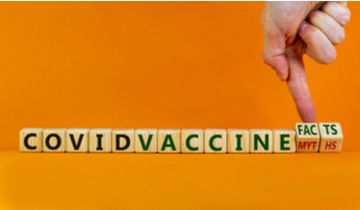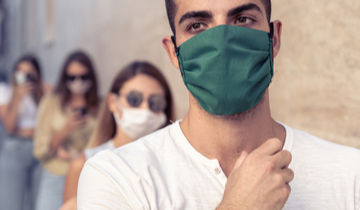Vaccines are widely considered to be one of the most important achievements of medical science. Mass vaccination campaigns and immunization save millions of lives each year. However, there is a section of people who think that vaccines are harmful and oppose them on various grounds. A common belief held by such people is that infection offers better immunity than vaccines. However, this is not necessarily true. To understand why vaccine-induced immunity is a better strategy than infection-acquired immunity, one must understand the immunity-generating mechanisms.How does an infection induce immunity?
When germs (such as bacteria or virus) enter the human body, they attack the healthy cells and multiply rapidly, resulting in an infection and illness. The immune system directs the white blood cells to fight the infection. Three specific types of white blood cells perform critical functions to defend against the infection – these are Macrophages, B-lymphocytes, and T-lymphocytes.
- Macrophages: These cells swallow up and digest the attacking virus. Post-digestion, the macrophages leave behind parts of the attacking virus, called antigens. The body identifies these antigens and triggers antibodies to attack them.
- B-lymphocytes (B-cells): These cells create antibodies that attack the antigens left behind by the macrophages.
- T-lymphocytes (T-cells): These white blood cells attack and kill those cells in the body that are infected by the attacking virus.
When a specific virus invades the body for the first time, the latter takes a few days to organize its fighting tools and respond to the resulting infection. However, post-infection, the immune system remembers the strategy it adopted earlier against that invading virus. As soon as the body encounters the same virus again, the T-cells (also called memory cells) move into action. The B-cells respond by producing antibodies to attack the familiar antigens. This results in natural immunity against the infection.
Nevertheless, it is not possible to rule out the likelihood of reinfection after acquiring natural immunity. Recently, several cases of Coronavirus reinfections have come to light. Moreover, it is not possible to predict who will develop severe symptoms or require hospitalization as a result of natural infection. Without timely treatment, a natural infection can lead to critical complications and can be fatal.
How does a vaccine develop immunity?
A vaccine ‘trains’ the immune system against a virus by mimicking the action of the infection. It triggers the immune system to release macrophages, T-cells, and B-cells, which fight against the infection. Once a vaccine is administered, an individual may experience certain minor symptoms such as fever or tiredness. However, the symptoms are part of the immunity-building process. Once the vaccine-induced infection subsides, the body is left with “memory” T-cells and B-cells. When the individual is exposed to real infection, the T-cells and B-cells will remember how to fight against it. T-cells will identify and eliminate infected cells, while B-cells will release antibodies that will neutralize the antigens left behind by the virus.
Which is better: Infection-acquired or vaccine-induced immunity?
According to medical researchers, vaccine-induced immunity is more effective than infection-acquired immunity. This is because vaccines can offer multiple benefits over natural infections.
Vaccines can be developed to help the immune system focus against specific antigens in order to generate a better immune response. As an example, the human papillomavirus (HPV) vaccine is associated with a stronger immune response than infection by the virus itself.
The immunogenicity of a vaccine – the ability of the vaccine to produce an effective immune response – can also be improved. This can be done using adjuvants - a pharmacological or immunological agent that is sometimes added to a vaccine to increase the immune response. Adjuvant vaccines are associated with longer-lasting immunity. On the other hand, the immunity acquired via an infection cannot be increased naturally.
Vaccines can be administered to generate the immune response at the right place in the human body. This is usually done via dosage and route of vaccine delivery. For example, in measles, the vaccine is administered via an injection into the muscle. The immune response generated by the measles vaccine is so strong that immune cells and antibodies reach the nose’s mucosal surface. On the other hand, the polio vaccine is delivered orally. The oral route is preferred because this helps the vaccine generate a localized immune response in the gut which is the site where poliovirus multiplies. All this is may not be possible with natural infection-acquired immunity.
Researchers believe that a future Coronavirus vaccine may be delivered directly to the nose. According to them, this will help develop a stronger immunity at the site of virus entry into the respiratory system.
Conclusion
Some people believe that naturally acquired immunity - immunity from having the disease itself, is better than the immunity provided by vaccines. According to the Centers for Disease Control and Prevention, US (CDC), natural infections can sometimes lead to serious complications that in some cases, can even be fatal. This is true even for diseases long known to humankind, like Chickenpox as well as recent ones like Coronavirus. It is impossible to predict who will get serious infections that may lead to hospitalization. The CDC also states that diseases that vaccines prevent can still be very serious – and vaccination is the best way to prevent them.







